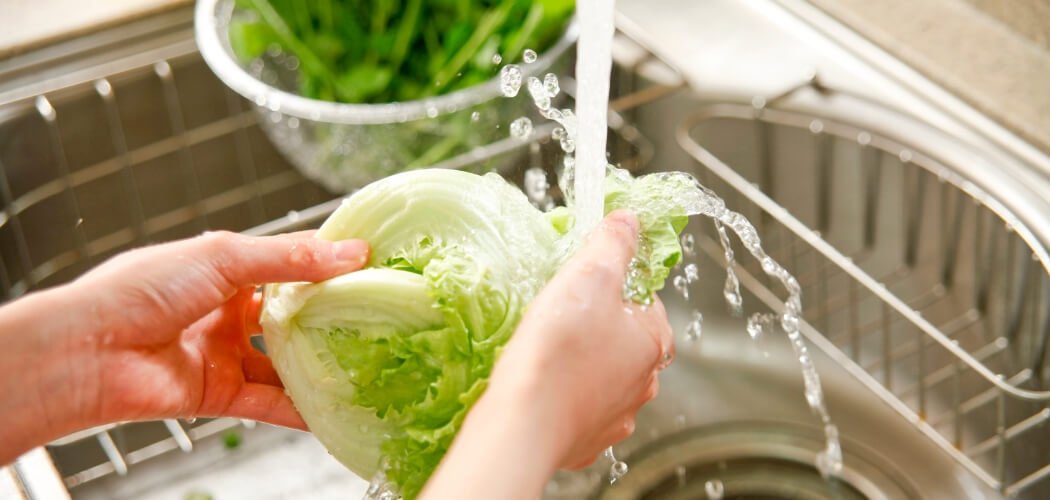Did you hear the news about a Pennsylvania woman arrested for purposely coughing on $35K worth of groceries? The store’s owner calls the whole ordeal a “twisted” coronavirus prank. And while it’s true most people aren’t visiting grocery stores with this same motive, it does have a lot of people questioning: Can I get coronavirus from fresh fruits and vegetables? And, how should I properly wash my fresh food so it’s safe?
This article is meant to empower, not scare, you. Information gives you the power to take control. And when all of this is over, it’s always good to know how to properly wash fruits and veggies from pesticides and other germs … so this is a great time to learn!
A Quick Note About The Spread
According to the US Food and Drug Administration’s website:
“Currently there is no evidence of food or food packaging being associated with transmission of COVID-19.”
While the chances are slim, theoretically, there is still a chance of getting sick if you pick up a piece of fruit or vegetable that an infected person just sneezed or coughed on. So, it’s important to practice food safety recommendations.
How To Properly Clean Fresh Produce
Right now, there is a lot of information floating around. Some people say to clean fresh produce with a diluted bleach solution, others say to submerge fruits and vegetables in soapy water. Then you have some people claiming to use chemical disinfectant wipes. According to health officials, all of these recommendations are linked to health risks of their own.
Ingesting any amount of bleach is dangerous and can lead to lung irritation. If not completely rinsed off, ingesting soap can lead to stomach upset.
The official recommendation is to run produce under warm water — since the virus reportedly breaks down with heat — and scrub with a produce brush.
As an extra precaution, I’m personally washing and then peeling a lot of my produce. It just makes me feel more comfortable to get rid of that top layer. When it comes to my onions, for example, I’m removing an extra layer off the top than usual.
Additionally, cooking up your veggies is an extra safety measure since the virus breaks down in heat.
What About Canned Goods?
The official recommendation is to rinse canned tops with warm water. I personally use disinfectant wipes to clean all the exterior of the cans in case someone touched them and the virus lives on its surface. I do the same with virtually everything – check out this video that’s gone viral showing you how to clean it all. It’s become so habitual for me that it no longer stresses me out!
Other Kitchen “Dos”
When it comes to preventing the spread of COVID-19, the most important thing is to practice good hygiene. Wash your hands as soon as you arrive home from the grocery store, before you prep meals, and after you are done cooking. Properly sanitize countertops, plates, utensils, cutting boards, etc. I have always been cooking with gloves to protect my hands (and my nails!) and I’m now even more religious about glove use.
Stay safe and use this time as an opportunity to clean up your hygiene – it will always be beneficial!
